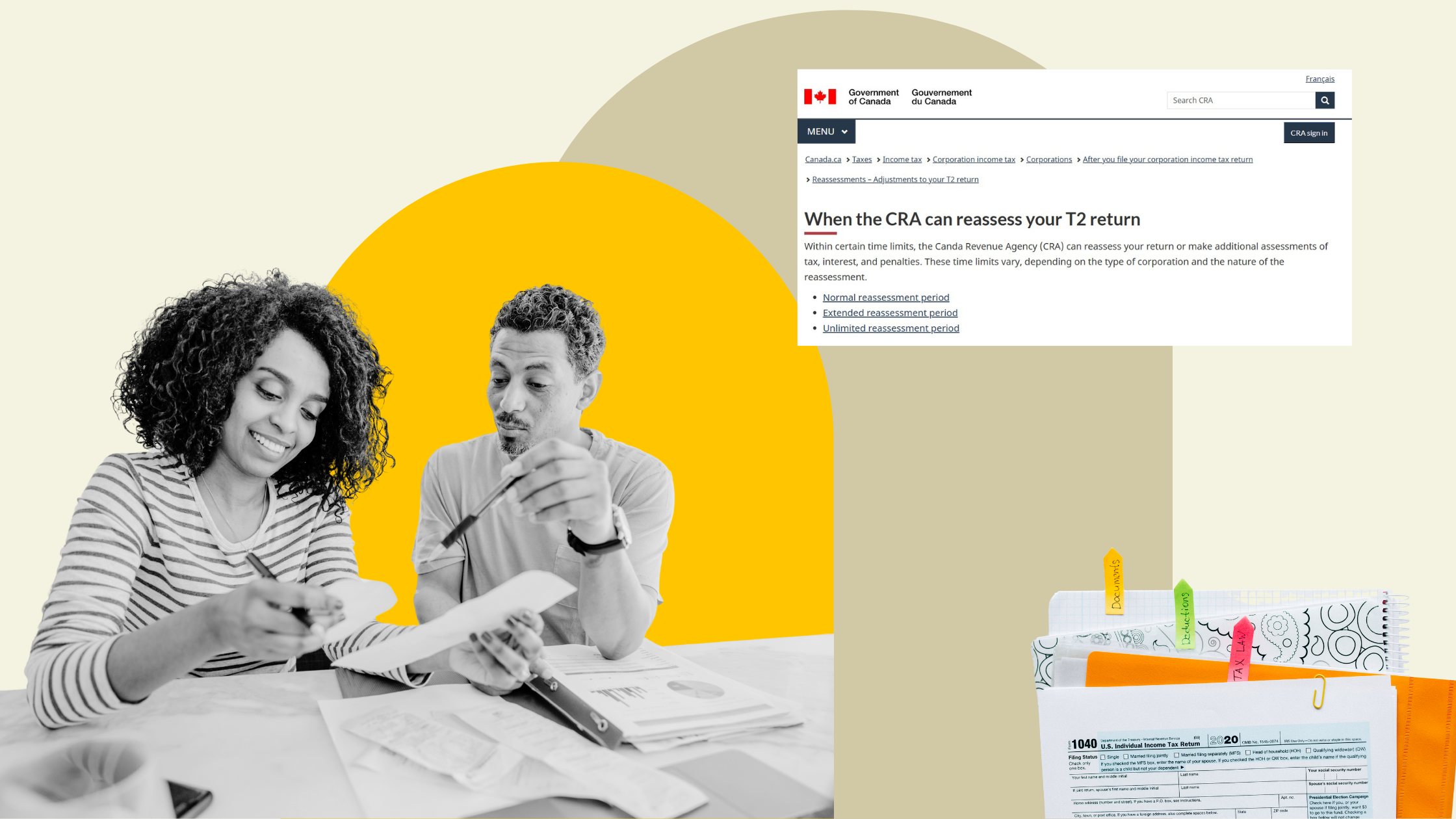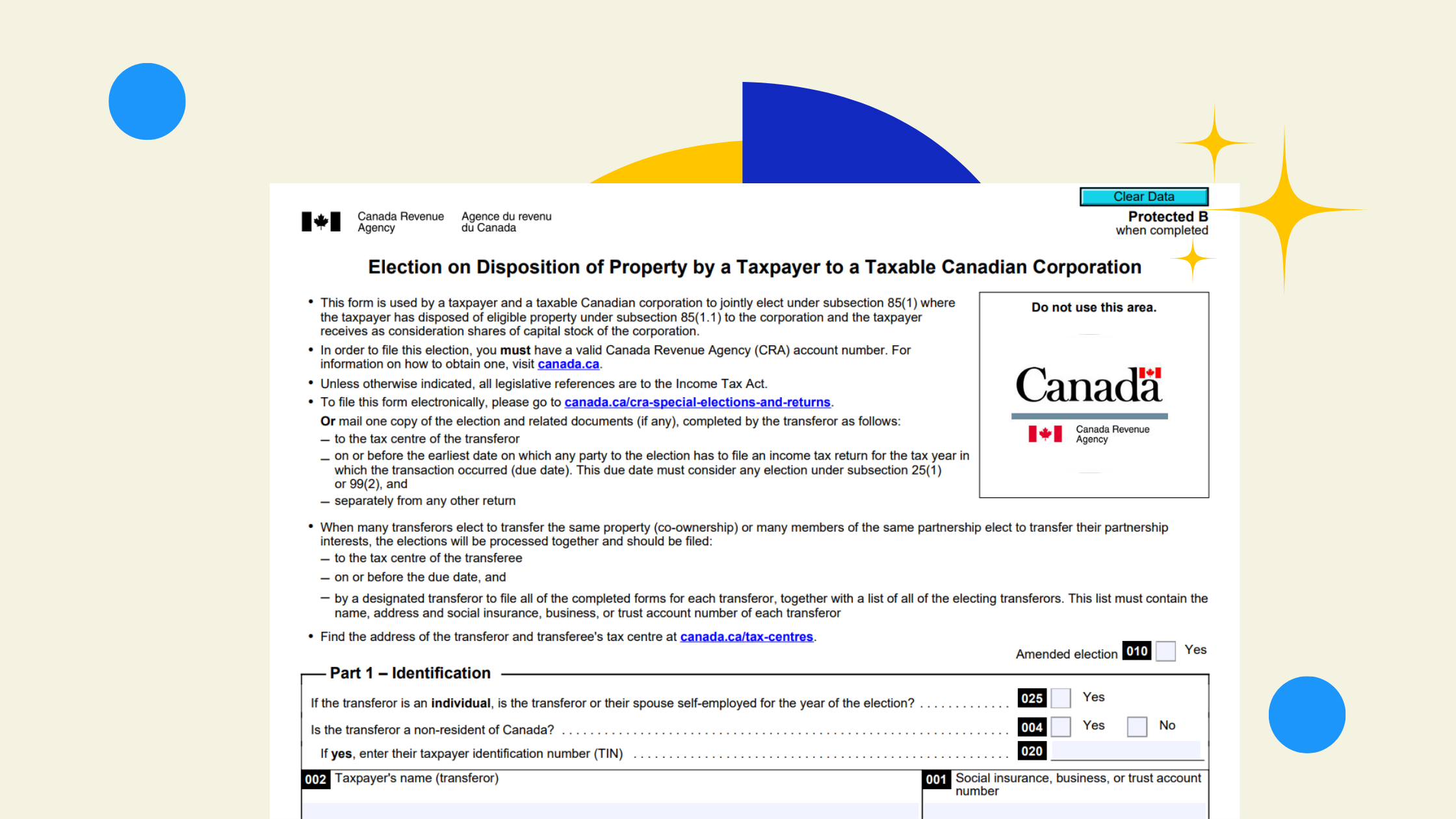You filed your taxes. You exhaled. You moved on.
Then months later… a letter from the CRA hits your desk:
“We’re reassessing your corporate return.”
Cue the spike in heart rate.
Don't worry - CRA reassessments are more common than you think — and usually triggered by simple, avoidable mistakes.
The good news is once you know what raises red flags, you can dodge them.
In this guide, we’ll cover:
- Why the CRA reassesses corporate returns
- The most common audit magnets
- And how to stay off their radar completely
Because when it comes to corporate tax, prevention isn’t just peace of mind — it could save you tens of thousands.
Why Does the CRA Reassess Returns?
It’s simple: you file your T2. Then, during the CRA’s reassessment window, an agent takes another look and thinks:
“Hmm… this doesn’t add up.”
That triggers a Notice of Reassessment — usually due to:
- Unclear filing
- Inconsistent reporting
- Suspicious transactions
Even if you didn’t do anything wrong, you could still end up with:
- More paperwork
- A surprise tax bill
- Delays in refunds or tax credits
What Triggers a CRA Reassessment?
Here are the top 3 triggers that quietly invite CRA attention:
1. Aggressive Deductions
Writing off your SUV, every coffee, or a full home office without strong backup is a quick way to get flagged.
2. Inconsistent Filings
For example - if your GST returns don’t match your T2 filings, CRA systems automatically detect it. This is a leading cause of reassessment notices.
3. Related-Party Transactions
Paying your spouse or shifting money between companies? These moves aren’t illegal — but if they’re poorly documented, they trigger scrutiny.

How Smart Business Owners Avoid Reassessments
Avoiding reassessments is all about having a clean, consistent, proactive filing.
Here’s how to do it:
Explain Big Changes Proactively
Include a short memo with your return if revenue drops or expenses spike. It gives CRA context — and saves you from a call later.
Get CRA-Ready With Your Records
Don’t just save receipts — organize them. Use tools like QuickBooks, Dext, or Hubdoc to create a digital paper trail.
Work With a CPA, Not Just a Bookkeeper
Once you're past $500K in revenue, a CPA is essential. They’ll ensure your tax strategy holds up — and help defend your return if needed.
Align All Your Filings
Your GST/HST, T2, and payroll filings should all tell the same story. Misalignment is an automatic audit flag.

Understanding CRA’s Reassessment Periods
The CRA has different timelines for how long they can reassess:
- Normal Period
- 3 years for CCPCs (Canadian-Controlled Private Corporations)
- 4 years for other corporations
- Extended Period (for more complex issues)
- Carryback losses
- Related-party/foreign transactions
- Provincial reassessments
- Unlimited Period (if fraud or misrepresentation is involved)
Understanding your window is key — especially if you need to file a Notice of Objection or apply for an extension of time.

Bottom Line: Don’t Give the CRA a Reason to Look Twice
CRA reassessments aren’t random. They’re data-driven, pattern-based — and often avoidable.
If you maintain:
- Clean, aligned filings
- Strong documentation
- Proactive communication
- The right CPA at your side
You can keep your focus on growth, not government letters.



.png)

